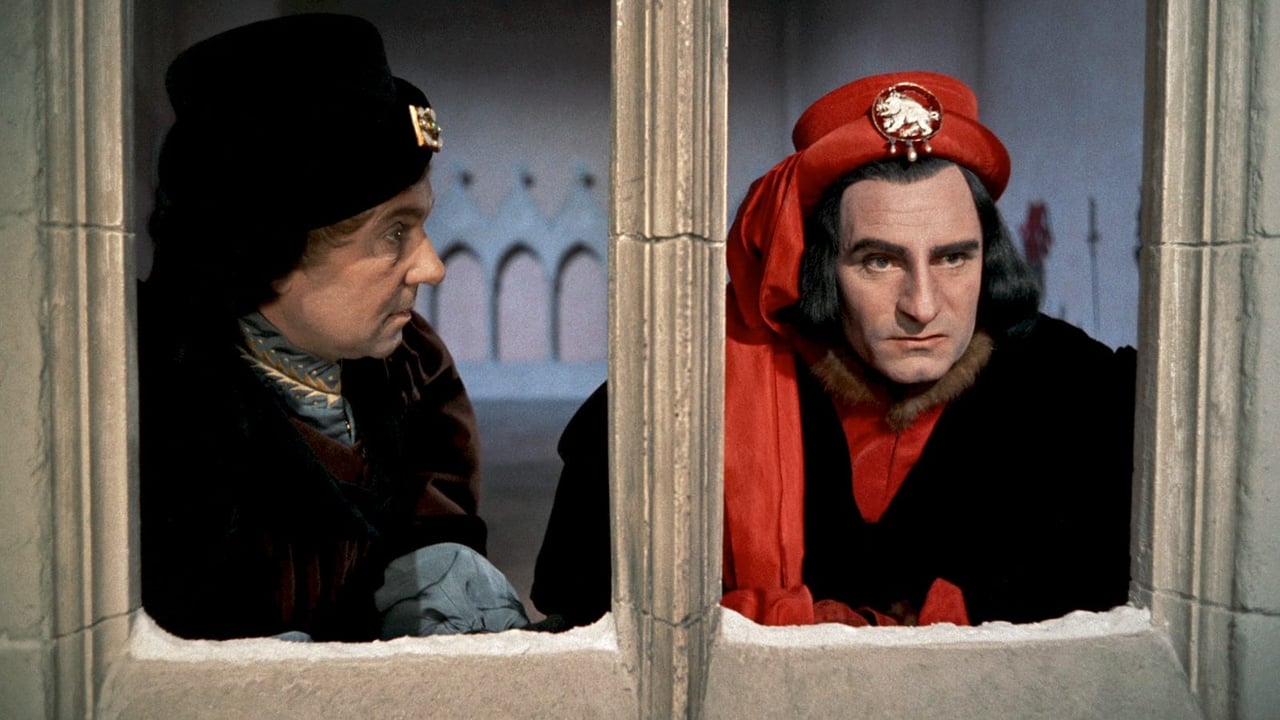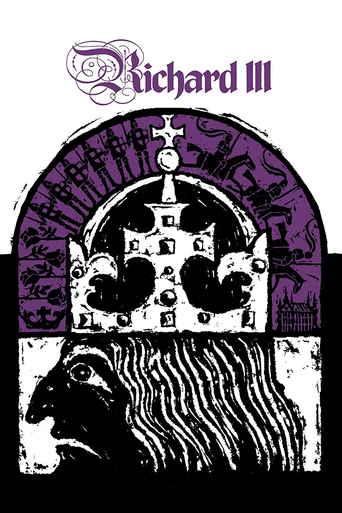



The greatest movie ever made..!
Terrible acting, screenplay and direction.
The film never slows down or bores, plunging from one harrowing sequence to the next.
View MoreStory: It's very simple but honestly that is fine.
This is nothing but an evil prince taking about what he is going to do. Or what he has already done. That not all of the movie. But that is most of the movie. I know people love this movie. I was disappointed. This not a well written movie. It is not a 7.6. It is just hype. And that is all it is. This is a very boring movie. I know it is popular. I do not care. The story line is awful. William Shakespeare was a good writer. This is not one of his best. This is a very boring movie. Do not waste your time. And do not waste your money. Do not see this movie. It is just boring. I need more lines. And I am running out of things to say.
View MoreApparently this movie flopped at the box office, which is why this was allegedly the last of Sir Lawrence Olivier's Shakespearian films. There is nothing necessarily bad about this film (though I might be considered a heretic for saying this, but the 'now is the winter of our discontent' soliloquy did seem to be a little stilted and lacked the passion and emotion one would expect from such as speech, though of course there is such a thing as over acting, and that is something that I doubt Olivier would do).This is sort of one of those films where the first scene does captivate you, and it is the coronation of the king, and we see everybody focus on the king, yet Richard glances back at the camera with that evil look in his eye which suggests that he is up to something and that he is not going to rest until he gets what he wants. I do suspect that we are all familiar (I hope) with this story, about an ambitious prince who manipulates his way to the top, but when there does not reward any of his peers, and ends up being killed after falling from his horse in the battle of Bodsworth Feild.The funny thing I do find about this play is that technically it is the final play in the trilogy set around the War of the Roses. The first two plays deal with the wars themselves, and this one begins after the war has ended, and it appears that the throne is secure in the hands of the House of York, except that there are elements within the house of York that are not happy with their position and want more.It is true that this play is based on real events, but in a way Shakespeare seems to also be reminding his audiences of the problems that arise out of civil wars. It is suggested that the plays were originally written at a time when there was a conspiracy against the throne of Queen Elizabeth, and in a sense it was reminding the people of England of their recent history and the dangers that would arise if a legitimate ruler were to be overthrown in a coup, and it is not as if Richard was the one doing the overthrowing, but rather he assisted in the initial coup, and once that had been completed, as it turns out the new King was not all that secure in his position anyway, namely because one of his supporters (Richard) was wanting the throne for himself.It should be noted that in this play there are references to the events in the previous play, such as the scene where Richard is not so much wooing his wife, but making his intentions known as she mourns over the body of her late husband. This was one of the events from the previous play. We also note that the play begins with a coronation, but as it happens, this is a coronation brought out by conquest rather than inheritance. To me, it would seem like only showing Return of the Jedi despite the fact that there are two other films before it.
View MoreThe war of roses is over, and the once-bitterly opposed houses of York and Lancaster are united in the wedding of their heirs (Edward of York is King). Yet the king's Machiavellian younger brother Richard (Olivier) plots to revive old hatreds and scheme and murder his way to the crown.After tackling "Henry V", in a slightly overwrought way, and "Hamlet", for which he was more than a bit too old, Olivier relies on the fruit of past successes and failures for his screen Shakespeare apotheosis. The play itself is indisputably among Shakespeare's finest, using the wonderful plot elements woven together throughout Henry VI (part1 through 3) and offering an epic conclusion that stands on its own, thanks to the wonderful character that is Richard.Using some almost theatrical staging at times, Olivier immerses us into the tale by including late scenes from Henry VI to great effect, allowing his audience to understand the context and characters before embarking on his roller-coaster ride. Much has been made of Olivier's sleazy, delicious performance as Richard (inspiring many villainous creations, such as Disney's big bad wolf), but his editing of Shakespeare's text is the real masterstroke. Scenes are omitted, others displaced or broken in halves... what might outrage in principle works wonders on screen, as Olivier's reworking only serves to make the story more clear and cinematic.At 160 minutes, "Richard III" gives us a compelling, baffling story that never outstays its welcome, a wonderful edifice marrying Olivier's direction with Shakespeare's art, and propping it up on four sturdy pillars of acting excellence: Olivier of course, but one mustn't forget the superb work by Claire Bloom, John Gieguld, and Ralph Richardson as Richard's confidant Buckingham (whom, rumor has it, Olivier once wanted Orson Welles to play).A must-see!
View MoreAlthough I liked this movie, I still prefer the McKellen/Loncraine version of 'Richard III'.First of all, Olivier is more of a stage actor and director than a filmmaker. This movie seems a lot like the recording of a stage performance and contains few elements that make up a 'real' movie. There are almost no powerful images: The only one that comes to mind is Richard's shadow that is featured in some scenes.Secondly, Olivier's acting feels strangely detached and emotionless. This works very well when Richard is talking to the audience, coolly commenting and reflecting on the situation, but it fails to capture both his charisma and his self-destructive ambitions. It remains a mystery how this Richard could successfully woo a widow over her husband's dead body and how he could be haunted by the specters of those he killed.Nevertheless, the performances of Ralph Richardson and John Gielgud are good, and Olivier's monologue on 'the winter of our Discontent' is great. This alone makes the movie worth watching.
View More